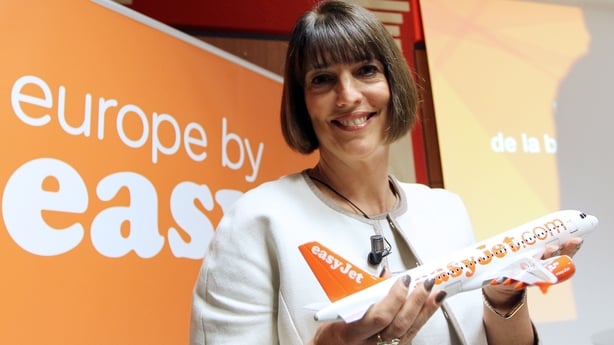EasyJet said strong demand for beach holidays was making up for a drop in travelling in the wake of attacks in Europe and raised its dividend in a sign of its confidence.
Europe's second biggest low-cost carrier is facing an increasingly competitive market as larger rival Ryanair and others add capacity and low fuel prices help all airlines to cut fares.
But the company said today it remained confident about future growth.
It announced plans to increase its dividend payout ratio by a quarter to 50% of post-tax income, subject to approval at its annual shareholder meeting.
For the 12 months to September 30, EasyJet said it expects to post pretax profit in line with analyst estimates of £721m.
This is despite reporting a £24m loss for the first-half of the year, swinging into the red after making a £7m profit the same time last year.
Attacks in Paris in November and in Brussels in March hit demand for flights, prompting EasyJet to cut prices to encourage bookings and weighing on the results.
Other European airlines including Ryanair, Aer Lingus and British Airways-owner IAG, Lufthansa and Air France-KLM have warned recently about the impact on tourism from the attacks.
EasyJet's first-half results also suffered from cancelled flights to the Egyptian resort of Sharm el-Sheikh over security concerns and air traffic control strikes in France.

"This half has had external events that we haven't seen come close together in this way for over a decade," the airline's chief executive Carolyn McCall said.
"April was particularity awful on yields because of Brussels and the tail-end of Paris, but there's an improving trajectory on that for May and June," she said.
The airline was seeing strong demand for beach holidays in Spain, Portugal, Italy and Greece, Ms McCall added.
Ryanair is due to announce results for the year ended March on May 23.
EasyJet said it would focus on keeping down costs, setting a target out to 2019 of flat unit costs at constant currency and excluding fuel.
As it grows, the airline is considering larger Airbus A321 jets for its fleet, which is currently focused on the A320.
The airline's CEO said EasyJet was conducting a "rigorous review" to ensure the bigger plane would be compatible with its operations.

